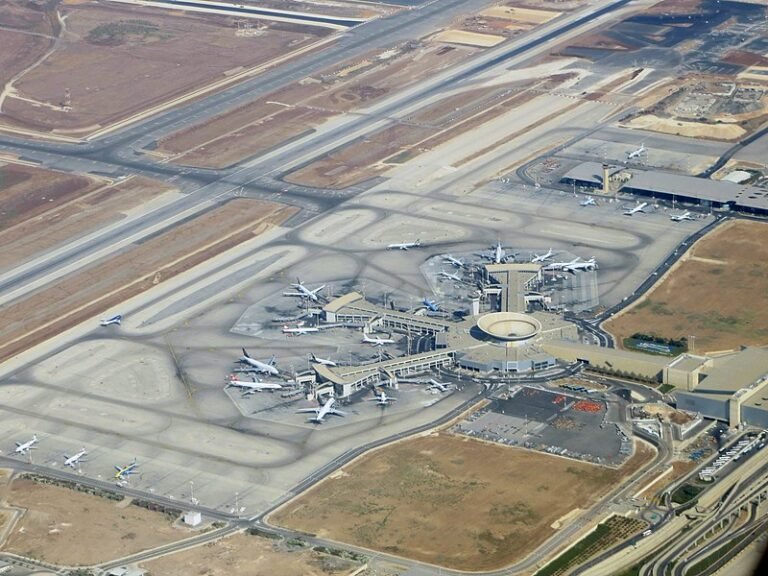Ben Gurion Airport is the busiest and most important international airport in Israel. Located near the city of Lod, around 20 kilometers southeast of Tel Aviv, it serves as the main gateway for international travel to and from the country. Operated by the Israel Airports Authority, Ben Gurion Airport plays a key role in both civilian and military operations. It is also one of the most secure airports in the world, known for its high-level security systems and careful screening procedures.
The airport is named after David Ben-Gurion, the first Prime Minister of Israel and one of the founders of the state. It was originally built in 1936 during the British Mandate and was first called Lydda Airport. After Israeli independence, it became Lod Airport, and in 1973 it was officially renamed Ben Gurion Airport to honor the former prime minister. The airport has grown rapidly over the years and now handles more than 25 million passengers annually in normal travel periods.
Ben Gurion Airport has two main terminals. Terminal 3 is the larger and newer terminal, opened in 2004, and it handles most of the international flights. It is equipped with modern facilities including duty-free shops, restaurants, prayer rooms, and VIP lounges. Terminal 1 is used mainly for domestic flights and some low-cost international carriers. It has also been renovated to improve passenger service and handle a growing number of travelers.
Security is one of the airport’s most important features. It is considered one of the safest airports in the world, using a multi-layered approach to keep passengers and staff secure. This includes thorough passenger screening, vehicle checks at airport entrances, and advanced technology to detect threats. Armed security personnel are stationed throughout the airport. The screening process begins long before a passenger reaches the terminal and involves profiling, questioning, and scanning both people and luggage.
Ben Gurion Airport is not only important for travel and tourism but also plays a major role in Israel’s national security. It is closely monitored and protected by the Israeli military. Missile defense systems such as Iron Dome and David’s Sling are placed near the airport to defend it against possible attacks. During times of conflict, such as the Gaza war or recent escalations with Iran, the airport has sometimes halted operations temporarily to avoid risks from incoming rockets or missiles.
One major incident in the airport’s history was the Lod Airport massacre in 1972, when three terrorists from the Japanese Red Army carried out an attack that killed 26 people and injured many others. This tragic event led to major changes in airport security not only in Israel but also around the world. Since then, the airport has continuously upgraded its systems and remains under constant security review.
Ben Gurion Airport is also used for special missions, such as transporting humanitarian aid, receiving foreign leaders, and supporting military logistics. It has become a key part of Israel’s global image and plays a central role in its connections with other countries. The airport is also linked to major Israeli cities through public transport. Israel Railways offers a direct line to the airport, making it easy for travelers to reach from Tel Aviv, Jerusalem, and other areas. Buses and taxis are also available, and private vehicles can access the airport via Route 1, which connects Tel Aviv and Jerusalem.
In recent conflicts, such as the missile strike from Iran in June 2025, Ben Gurion Airport has been identified as a strategic target. According to reports, Iranian missiles hit key locations including the airport, causing significant concern. The incident highlighted the airport’s importance not only as a travel hub but also as a symbol of Israel’s infrastructure and national strength.







